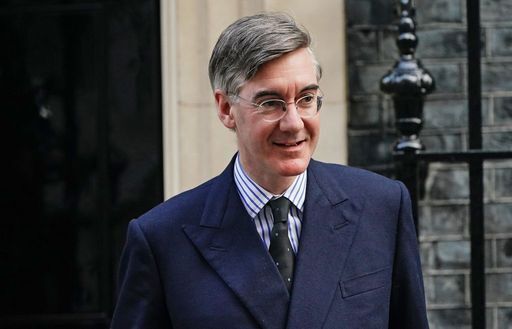With figures out this morning showing an unexpected contraction in UK GDP of 0.3% in August, the Business Secretary, Jacob Rees-Mogg has reiterated how the figures justify the government’s recent mini budget and denied it has been responsible for recent volatility on the financial markets.
The pound has fallen by nearly 10% against the dollar since the Chancellor’s financial statement last month, with the Bank of England driven into buying bonds to support the pension market.
Speaking on the BBC Radio 4 ‘Today programme’ this morning, Mr Rees-Mogg said, “What has the caused the effect in pension funds, is because of some quite high risk but low probability investment strategies. It is not necessarily the mini budget. It could just as easily be the fact that the day before, the Bank of England did not raise interest rates as much as the Federal Reserve did”.
Speaking of the volatility in the foreign exchange markets, Mr Rees-Mogg again strove to play down any causality with the government’s recent financial statement in which it plans to cut taxes, paid for in the short term by an increase in borrowing.


Suggesting that the increase in borrowing was “not enormous” as a proportion of GDP, Mr Rees-Mogg said of pressures in financial markets, “The interest rate differential between the US and the UK has widened. It is much more to do with interest rates than it is to do with a minor part of fiscal policy”.
The unexpected fall in GDP announced this morning has heightened concerns that the UK is now on course for a recession earlier than expected.
GDP had previously grown by 0.1% in July, but in announcing today’s figures the Office of National Statistics pointed to the struggles of many services businesses such as hotels, hospitality and retail in the summer.
Reacting to the fall in GDP, the Business Secretary, Mr Rees-Mogg argued the decline justified the urgency of the government’s mini budget saying, “The issue facing the government is can we get growth because growth is what pays the bills both for the government and consumers”.
Business groups have this morning expressed concern at the fall in economic output.
Ben Jones, the lead economist at the business group, the Confederation of British Industry, said, “Rising interest rates are adding further to costs facing businesses and households. In the run-up to the medium-term fiscal plan, business will be looking for reassurance that policy measures will be delivered against the backdrop of a stable macroeconomic environment.”
With consumer confidence seen as being particularly uncertain at the moment, it remains to be seen whether the slowing of the economy will impact the level of interest rate rises that the Bank of England judges as necessary to slow inflation.

